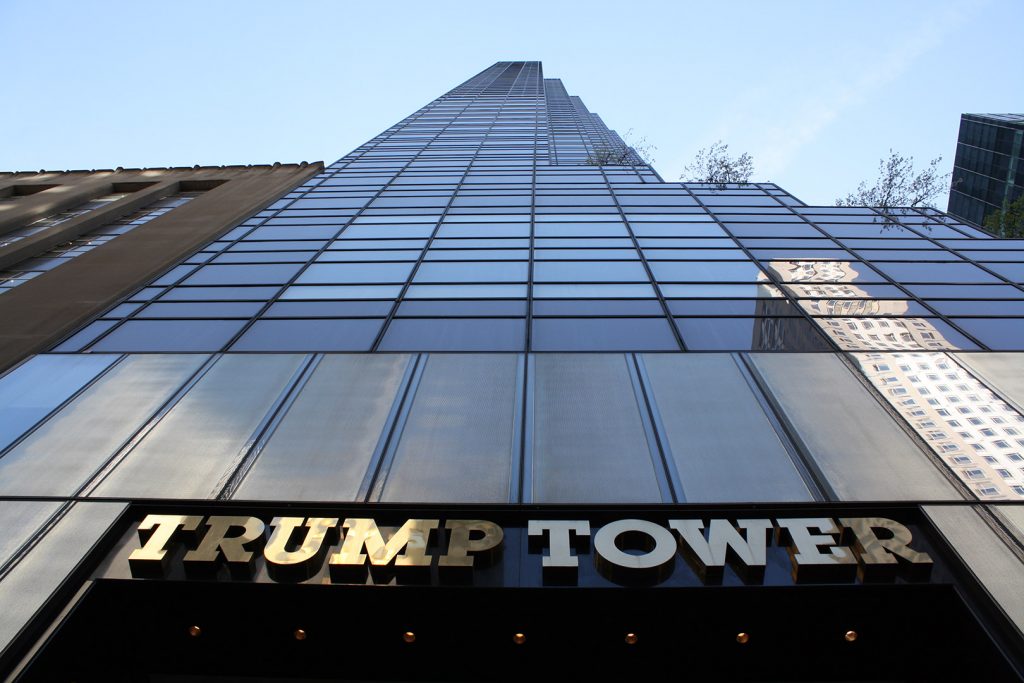
The Trump Administration won a temporary victory in December when the Fourth Circuit Court of Appeals ordered a stay in a lawsuit filed by state attorneys general alleging that Donald Trump is illegally profiting from his private business interests while serving as President.
The Fourth Circuit’s ruling came in response to a Justice Department appeal asking the court to either throw out the case entirely or issue a stay.
The Justice Department was appealing a lower court ruling that allowed the lawsuit, filed by the Maryland and Washington D.C. Attorneys General, to move forward. Experts called the appeal “unusual” and “aggressive,” as appellate courts usually don’t weigh in until there is a final decision at the lower court level.
The Fourth Circuit stay does not represent a ruling on the merits of the emoluments lawsuit.
What Does “Emoluments” Mean?
Before 2017, the vast majority of Americans had never heard of the word “emoluments.” This is because, prior to 2017, Presidents had taken concrete steps to separate themselves from their private business interests before taking office. Jimmy Carter, to use one famous example, had to sell his family’s peanut farm before he was inaugurated.
Donald Trump proved rather less interested in that particular governing norm. Despite some superficial steps, the President refused to liquidate The Trump Organization or follow the advice of Washington ethicists and meaningfully untangle himself from his many business concerns.
It was here that the so-called Emoluments Clause to the Constitution came into play. The Constitution says, “no Person holding any Office of Profit or Trust under them, shall, without the Consent of the Congress, accept of any present, Emolument, Office, or Title, of any kind whatever, from any King, Prince, or foreign State.”
Generally speaking, an emolument is defined as any compensation or benefit received for services rendered. When the Founding Fathers drew up the Constitution, they were worried about foreign countries gaining control of the new (and rather poor) American government through bribery.
The Emoluments Clause generally hadn’t been a significant issue through most of American history – politicians are normally eager to signal their commitment to service and country over profit. But Donald Trump has never been a normal politician.
Even in the face of intense scrutiny over the President’s business interests and the Emoluments Clause, the Trump Organization – run by the President’s children through a trust – continues to pursue controversial projects. A new report alleges that the Trump Organization is pushing a real estate venture in the Dominican Republic, though the company denies that claim. The Dominican government recently changed rules in the tourism-heavy eastern part of the country to allow buildings in the region to be built higher, a decision critics allege is a favor to the Trump family.
What the Emoluments Suit Alleges
Maryland and the District of Columbia are attempting to define – for the first time – the meaning and limits of the Constitution’s emoluments clause.
Essentially, the attorneys general in Maryland and DC are claiming that the President’s hotels are unfairly competing with hotels and convention centers in those jurisdictions. The attorneys general allege that Trump-branded hotels are drawing business from foreign diplomats who are attempting to garner favor with the President by spending money at his businesses.
The lawsuit is in its early stages, but the immediate concern for the President is the prospect of discovery. In November, federal Judge Peter Messitte had ordered discovery to begin in the case. If discovery moves forward, attorneys for Maryland and DC would be able to subpoena potentially damning documents, including the President’s tax returns and the identity of hotel guests who had business at the White House.
The Fourth Circuit’s Ruling
The Justice Department moved quickly in the wake of Judge Messitte’s ruling. Federal lawyers argued an emergency stay was necessary, as the lawsuit raised novel legal arguments and, they claimed, could impede the President’s ability to perform his duties.
The President’s lawyers met with success when the Fourth Circuit agreed to stay Judge Messitte’s ruling, sparing the President from discovery for the time being.
The Fourth Circuit set oral arguments for March 19-21. Lawyers for both sides will argue over procedural issues related to the lawsuits and whether DC and Maryland have the right to subpoena private business records from the President.



Andrew: please my emollument story for background, with eloquent quotes about Trump International hotel from The Post writers.
Then there’s the Scottish Golf course and the $550 million Dump owns China.
Not to mention the Moscow hotel.